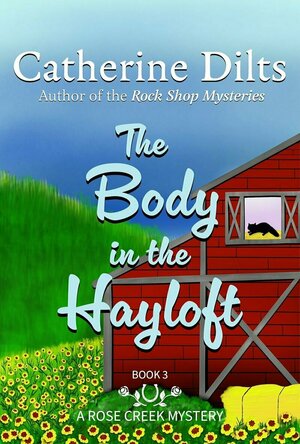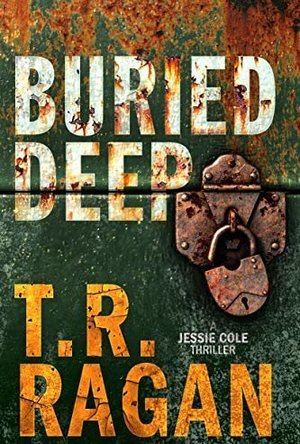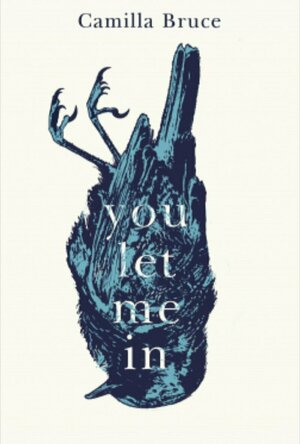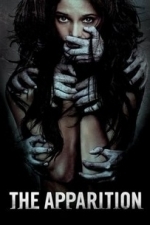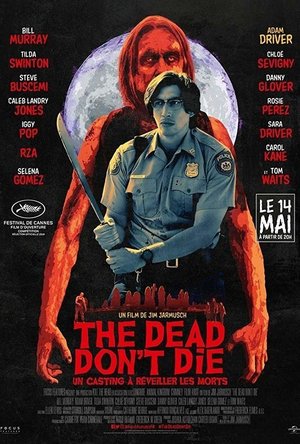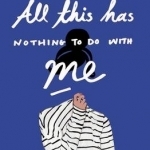Search
Search results
Mark @ Carstairs Considers (2466 KP) rated The Body in the Hayloft in Books
Dec 4, 2025
The Rose Creek Book Club is Back in Action!
Callie’s ranch has been invaded by guests when the Equi X event loses their location at the last minute and Callie’s husband offers the Double C for their use. Equi X is supposed to celebrate the best of the equestrian community, both the novice and the expert, and some of Callie’s friends and their loved ones are participating. But when one of the presenter’s cats goes missing, Callie finds herself among those trying to locate the pampered pet. When Callie finds the pet, she also finds a dead body. Is it an accident? Or has the book club found themselves involved in another murder?
It’s been two years since we last got to visit the ladies of the Rose Creek Book Club, but it was worth the wait. Yes, all the characters we love are front and center here, and I enjoyed getting updates on them and their lives. They each have their own storyline, which allows them to shine. It also slows down the mystery a bit, but for the most part, everything is balanced well. And the mystery has plenty going on to keep us guessing. I did figure things out just before the characters did, but barely. And the climax answered any lingering questions I had. If you want a cozy mystery with a strong community, be sure to check this series out. Fans will be delighted to return to see how these characters are doing.
It’s been two years since we last got to visit the ladies of the Rose Creek Book Club, but it was worth the wait. Yes, all the characters we love are front and center here, and I enjoyed getting updates on them and their lives. They each have their own storyline, which allows them to shine. It also slows down the mystery a bit, but for the most part, everything is balanced well. And the mystery has plenty going on to keep us guessing. I did figure things out just before the characters did, but barely. And the climax answered any lingering questions I had. If you want a cozy mystery with a strong community, be sure to check this series out. Fans will be delighted to return to see how these characters are doing.
Billie Wichkan (118 KP) rated Buried Deep (Jessie Cole, #4) in Books
May 22, 2019
Two missing persons. One apparent suicide. Three cases pushing PI Jessie Cole and crime reporter Ben Morrison closer to the edge.
Lacey Geiger could be a very rich woman. If Jessie Cole can find her. The beneficiary of a sizable estate, Lacey vanished years ago after escaping an abusive childhood and is veiled now behind a new identity. Jessie has two weeks to find her. Its enough time to discover that Lacey is hiding from so much more than anyone realized. But she isnt the only one with secrets. And Jessies not the only one searching for the truth.
A concerned daughter has asked for help finding her mothera woman said to have been murdered thirty years ago. And Jessies colleague Ben, an amnesiac still struggling with the bloody memories of a shattered life, is nearer to piecing together a very dark picture. Especially when someone he detests is found dead, hanging from a tree by a riverbank.
Now as the mysteries, puzzles, and lies of three investigations are unearthed, Jessie and Ben will risk everything to bring all that is hidden into the light.
Jessie Cole a private investigator, girlfriend to Colin, friend to Ben, mother to sister's daughter Olivia, and boss to Zee has another round of nail biting, page turning, what the heck is going on cases to solve.
This series just keeps getting g better and better. Jessie Cole is super busy now with several cases open when she gets two more cases added to the load and they just happen to be missing person cases.
The story was well written with characters I love. It was fast paced with lots of suspense.
We finally come to some conclusion and magnificent reveals for some.
Wow what an ending this one had!
Waiting and hoping there will be a book 5.; if not a spin off series???!
Highly recommend reading.
A Special Thank you to Thomas & Mercer and Netgalley for the ARC
Lacey Geiger could be a very rich woman. If Jessie Cole can find her. The beneficiary of a sizable estate, Lacey vanished years ago after escaping an abusive childhood and is veiled now behind a new identity. Jessie has two weeks to find her. Its enough time to discover that Lacey is hiding from so much more than anyone realized. But she isnt the only one with secrets. And Jessies not the only one searching for the truth.
A concerned daughter has asked for help finding her mothera woman said to have been murdered thirty years ago. And Jessies colleague Ben, an amnesiac still struggling with the bloody memories of a shattered life, is nearer to piecing together a very dark picture. Especially when someone he detests is found dead, hanging from a tree by a riverbank.
Now as the mysteries, puzzles, and lies of three investigations are unearthed, Jessie and Ben will risk everything to bring all that is hidden into the light.
Jessie Cole a private investigator, girlfriend to Colin, friend to Ben, mother to sister's daughter Olivia, and boss to Zee has another round of nail biting, page turning, what the heck is going on cases to solve.
This series just keeps getting g better and better. Jessie Cole is super busy now with several cases open when she gets two more cases added to the load and they just happen to be missing person cases.
The story was well written with characters I love. It was fast paced with lots of suspense.
We finally come to some conclusion and magnificent reveals for some.
Wow what an ending this one had!
Waiting and hoping there will be a book 5.; if not a spin off series???!
Highly recommend reading.
A Special Thank you to Thomas & Mercer and Netgalley for the ARC

Bridge Constructor
Games and Entertainment
App
+++ Over 50 million players worldwide +++ +++ Number 1 in the games charts for iPad & iPhone in 89...
ClareR (6054 KP) rated You Let Me In in Books
Mar 10, 2020
A satisfyingly dark read!
You Let Me In is unlike anything I’ve read before. I signed up to read this on The Pigeonhole based purely on the cover. I didn’t read anything about it, in fact I thought it was going to be a thriller. The cover though: I actually thought it was a hand showing someone then bird’, and I was half right. It’s a dead bird, and the main character, Cassandra Tipp, does seem to spend most of her life metaphorically giving everyone ‘the bird’ (ie. telling them to leave her alone).
There is a mystery at the start of this. Cassandra Tipp has disappeared, and her niece and nephew have been told that after a year they can have her worldly goods if they go to her house, find the manuscript she has left them and deduce a code word.
This book is that story.
It transpires that Cassie has been involved in the death of three people: her husband Tommy Tipp, her father and her brother. But how did she get away with it? Or more importantly: who did it if she didn’t? And who is Pepper Man?
Ok, I don’t want to give too much away, but fairies are involved from the beginning, and they’re unlike the fairies I’ve read about in the past. They come with a fascinating origin story, and I’d be interested to know if they were a construct of the authors imagination, or whether they’re a Norwegian version of the fairies I’ve learnt about with my Anglo-Irish background. Either way, they’re great characters.
There’s also a chance that child abuse is involved, either by humans or fairies, it all depends on what you read in to things that happen, whether or not you believe that Cassie is in fact sane. Some of the violence is pretty graphic too, and did put some Pigeonhole readers off.
It’s a puzzling book, a book where you’re never sure whether the narrator is reliable. And I loved it. So, if you like quirky, puzzling, violent(ish), dark books, with fairies (or perhaps not) and potentially with characters with mental health issues, then you’ll enjoy this book as much as I did. It was a satisfying, startling ten days with The Pigeonhole!
There is a mystery at the start of this. Cassandra Tipp has disappeared, and her niece and nephew have been told that after a year they can have her worldly goods if they go to her house, find the manuscript she has left them and deduce a code word.
This book is that story.
It transpires that Cassie has been involved in the death of three people: her husband Tommy Tipp, her father and her brother. But how did she get away with it? Or more importantly: who did it if she didn’t? And who is Pepper Man?
Ok, I don’t want to give too much away, but fairies are involved from the beginning, and they’re unlike the fairies I’ve read about in the past. They come with a fascinating origin story, and I’d be interested to know if they were a construct of the authors imagination, or whether they’re a Norwegian version of the fairies I’ve learnt about with my Anglo-Irish background. Either way, they’re great characters.
There’s also a chance that child abuse is involved, either by humans or fairies, it all depends on what you read in to things that happen, whether or not you believe that Cassie is in fact sane. Some of the violence is pretty graphic too, and did put some Pigeonhole readers off.
It’s a puzzling book, a book where you’re never sure whether the narrator is reliable. And I loved it. So, if you like quirky, puzzling, violent(ish), dark books, with fairies (or perhaps not) and potentially with characters with mental health issues, then you’ll enjoy this book as much as I did. It was a satisfying, startling ten days with The Pigeonhole!
Darren (1599 KP) rated The Apparition (2012) in Movies
Oct 2, 2019
Characters – Kelly is a trainee vet, she moves into one of her parent’s rental properties with her boyfriend where she starts experiencing the haunting events. Ben is the boyfriend of Kelly, he is a good handy man and searching for his career. It is his past that comes back to haunt them. Patrick is part of the team that did the experiment with Ben back in the college days and now he will help right the wrongs.
Performances – The performances, well this is fun and this is not just the actors performances that hold them back, the characters are written one dimension which gives the actors nothing to work with. If we look at the main three stars, they all struggle to make an impact and it shows through the film.
Story – The story here follows an experiment gone wrong and now there is an entity haunting the people who released it from whether it came from, it plays into the idea that you shouldn’t mess with the dead because they will come to haunt you. Anyway this story is simple enough, it is a survival horror against a ghost figure that doesn’t have too much going on about it. We have plenty of just dark sequences that seem to go nowhere or lead to false jump scares and before long it is over, I think. I can’t say the story offers too much for the horror fans or just film fans and it feels like it is flat by the end of the film
Horror/Thriller – The horror is mostly false scares which just frustrate throughout, you are now looking to be on the edge of your seats, well this doesn’t give you any of that.
Settings – The settings just feel like they went and grabbed the Poltergeist location and thought this will do, nothing makes sense for the entity and the hauntings though.
Special Effects – The effects look poor throughout, it all looks like CGI which is poor to see in a modern horror.
Scene of the Movie – Credits were good.
That Moment That Annoyed Me – Kelly criticising people who work in stores, these people work hard and deserve praise.
Final Thoughts – This is a poor lazy horror that just doesn’t do anything for the genre and becomes dull quickly.
Overall: Boring horror that has no scares.
Performances – The performances, well this is fun and this is not just the actors performances that hold them back, the characters are written one dimension which gives the actors nothing to work with. If we look at the main three stars, they all struggle to make an impact and it shows through the film.
Story – The story here follows an experiment gone wrong and now there is an entity haunting the people who released it from whether it came from, it plays into the idea that you shouldn’t mess with the dead because they will come to haunt you. Anyway this story is simple enough, it is a survival horror against a ghost figure that doesn’t have too much going on about it. We have plenty of just dark sequences that seem to go nowhere or lead to false jump scares and before long it is over, I think. I can’t say the story offers too much for the horror fans or just film fans and it feels like it is flat by the end of the film
Horror/Thriller – The horror is mostly false scares which just frustrate throughout, you are now looking to be on the edge of your seats, well this doesn’t give you any of that.
Settings – The settings just feel like they went and grabbed the Poltergeist location and thought this will do, nothing makes sense for the entity and the hauntings though.
Special Effects – The effects look poor throughout, it all looks like CGI which is poor to see in a modern horror.
Scene of the Movie – Credits were good.
That Moment That Annoyed Me – Kelly criticising people who work in stores, these people work hard and deserve praise.
Final Thoughts – This is a poor lazy horror that just doesn’t do anything for the genre and becomes dull quickly.
Overall: Boring horror that has no scares.
Emma @ The Movies (1786 KP) rated The Dead Don't Die (2019) in Movies
Jun 20, 2020
I'm a little sad to say that I spent real money on this film. It wasn't showing at my Cineworld and the chance of a second stage release with the summer holidays approaching was unlikely. Luckily one of my Showcase Cinemas had it on and I ventured out into the real world to see it.
I won't bother with an extended synopsis because honestly I don't know what the point would be... it's zombies, everyone is trying to stay alive, literally nothing else is really happening in the story.
Up until this point I never really understood people using the word "meta" (unless it was DC related), I get it now. Officer Peterson, played by Adam Driver, is so meta that there actually may not be any more to go around.
The cast felt like it was just quirky enough to work together, especially as this wasn't going to be a traditional zombie movie. Looking back at the actors now I'm wondering if I might have enjoyed this movie more if it had unknown actors in it. I don't think it would have risen much higher in the rankings but I would have been less annoyed by some of the happenings.
Bill Murray plays Chief Robertson, a man who is seemingly always slightly confused by everything and also never becomes more than mildly alarmed by what's going on. The character and the performance were both rather boring. Murray came alive about as much as any of the zombies did.
The same can be said for Adam Driver, though I actually think that's par for the course with the way he acts rather than anything else. He always feels like mid-tier Keanu Reeves without the range. Once you realise that Peterson has the meta inside track it becomes a challenge to see anything he says in any other way. The script became rather frustrating because of this.
We're shown a very strange Tilda Swinton in the trailer and you have to wonder if the make-up direction was just "I want her to be the palest she's ever been and throw in a little "Ring" vibe for good measure." Zelda is probably the perfect zombie apocalypse companion, but she doesn't make for very dynamic viewing.
All of this negative feeling can be laid squarely at the script's door. It has little of interest to warrant a story at all, which is weird because there are elements that you think lead somewhere and then inexplicably don't. The ending is particularly bad and is what I've dubbed the "Stephen King ending". I won't expand on that here because it definitely constitutes spoilers if you haven't seen it.
There are some nice touches. The animal behaviour, the character of Mallory, and some of the effects on Selena Gomez. There's also some that left me questioning how they've portrayed zombies in this compared to other z-movies, but it's not in the trailer and while it's in my notes I'm wondering if I didn't just imagine the whole thing.
Those few little snippets can't save this movie. The poor script has several (that's me being generous) holes in it that just don't stand up when you look closely, and it's not good enough to give you anything else to look at apart from those holes. From its "maybe sciency things will cover the lack of reasoning" beginning to the "Stephen King ending" I was very disappointed.
Originally posted on: https://emmaatthemovies.blogspot.com/2019/07/the-dead-dont-die-movie-review.html
I won't bother with an extended synopsis because honestly I don't know what the point would be... it's zombies, everyone is trying to stay alive, literally nothing else is really happening in the story.
Up until this point I never really understood people using the word "meta" (unless it was DC related), I get it now. Officer Peterson, played by Adam Driver, is so meta that there actually may not be any more to go around.
The cast felt like it was just quirky enough to work together, especially as this wasn't going to be a traditional zombie movie. Looking back at the actors now I'm wondering if I might have enjoyed this movie more if it had unknown actors in it. I don't think it would have risen much higher in the rankings but I would have been less annoyed by some of the happenings.
Bill Murray plays Chief Robertson, a man who is seemingly always slightly confused by everything and also never becomes more than mildly alarmed by what's going on. The character and the performance were both rather boring. Murray came alive about as much as any of the zombies did.
The same can be said for Adam Driver, though I actually think that's par for the course with the way he acts rather than anything else. He always feels like mid-tier Keanu Reeves without the range. Once you realise that Peterson has the meta inside track it becomes a challenge to see anything he says in any other way. The script became rather frustrating because of this.
We're shown a very strange Tilda Swinton in the trailer and you have to wonder if the make-up direction was just "I want her to be the palest she's ever been and throw in a little "Ring" vibe for good measure." Zelda is probably the perfect zombie apocalypse companion, but she doesn't make for very dynamic viewing.
All of this negative feeling can be laid squarely at the script's door. It has little of interest to warrant a story at all, which is weird because there are elements that you think lead somewhere and then inexplicably don't. The ending is particularly bad and is what I've dubbed the "Stephen King ending". I won't expand on that here because it definitely constitutes spoilers if you haven't seen it.
There are some nice touches. The animal behaviour, the character of Mallory, and some of the effects on Selena Gomez. There's also some that left me questioning how they've portrayed zombies in this compared to other z-movies, but it's not in the trailer and while it's in my notes I'm wondering if I didn't just imagine the whole thing.
Those few little snippets can't save this movie. The poor script has several (that's me being generous) holes in it that just don't stand up when you look closely, and it's not good enough to give you anything else to look at apart from those holes. From its "maybe sciency things will cover the lack of reasoning" beginning to the "Stephen King ending" I was very disappointed.
Originally posted on: https://emmaatthemovies.blogspot.com/2019/07/the-dead-dont-die-movie-review.html
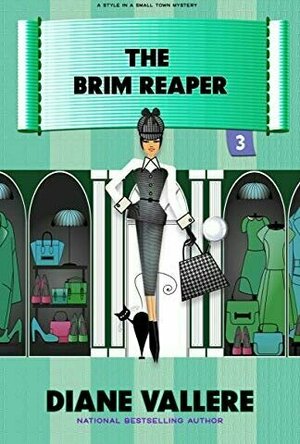
The Brim Reaper
Book
With no job prospects on the horizon, former fashion buyer Samantha Kidd convinces boyfriend and...
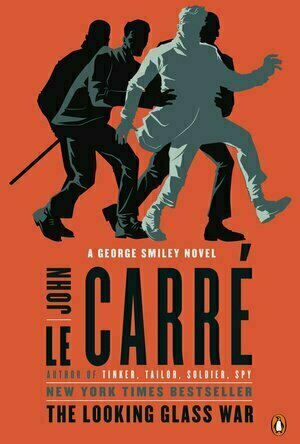
The Looking Glass War
Book
“You are either good or bad, and both are dangerous.” It would have been an easy job for...
Although mudlarks were also found in London, diving for pennies in the Thames mudbanks, this book is set in Portsmouth, so I was really enthusiastic to read this, hoping I’d know where the characters were larking about. Going to stay with my grandparents every half term means I know the area fairly well. Sure enough, most of the time I knew where the characters were, which added to my enjoyment of the book. In general, though, Sedden describes the scenes well enough that anyone could pick the book up and become immersed in its landscape.
Jimmy and Reg, the first-person protagonist and his best friend, were really realistic too – there were things like Reg having a stutter, the number of dead-arms the boys give each other (!) and the sense of guilt Jimmy feels when he realises he’s in the wrong, which made the boys really 3D, relatable characters.
I loved that the book brought to life a picture of not only mudlarking, but the start of the First World War and everyday people’s reactions to it. The twists that take place in the book can’t be guessed from the blurb, and I found myself surprised a lot of the time. The solution to the mystery had to be explained to me just as much as it did to Jimmy and Reg, which is rare, as I can usually guess what’s coming from at least a couple of pages before. PLUS, the solution was historically accurate. Double tick!
I reckon this book will appeal to boys (and probably girls too!) around 11-14, especially those with a love of history. Mind you, once I get the book back I’ll be sending it to my grandpa, who I’m sure will love it. It’s his old stomping ground, after all, although he’s never been as nasty as the policemen in the book!
If you liked this review, I also went into some of the history of mudlarking in Portsmouth on my <a href="http://www.a-worldofwords.com/2013/05/mudlark-by-john-sedden.html">blog</a>;; please feel free to check it out!
Jimmy and Reg, the first-person protagonist and his best friend, were really realistic too – there were things like Reg having a stutter, the number of dead-arms the boys give each other (!) and the sense of guilt Jimmy feels when he realises he’s in the wrong, which made the boys really 3D, relatable characters.
I loved that the book brought to life a picture of not only mudlarking, but the start of the First World War and everyday people’s reactions to it. The twists that take place in the book can’t be guessed from the blurb, and I found myself surprised a lot of the time. The solution to the mystery had to be explained to me just as much as it did to Jimmy and Reg, which is rare, as I can usually guess what’s coming from at least a couple of pages before. PLUS, the solution was historically accurate. Double tick!
I reckon this book will appeal to boys (and probably girls too!) around 11-14, especially those with a love of history. Mind you, once I get the book back I’ll be sending it to my grandpa, who I’m sure will love it. It’s his old stomping ground, after all, although he’s never been as nasty as the policemen in the book!
If you liked this review, I also went into some of the history of mudlarking in Portsmouth on my <a href="http://www.a-worldofwords.com/2013/05/mudlark-by-john-sedden.html">blog</a>;; please feel free to check it out!
BookInspector (124 KP) rated All This Has Nothing to Do with Me in Books
Sep 24, 2020
Well this one was weird… This book has a stunning cover, it is a tiny book, and I knew that this is going to be a quick read, and I bought it for only 10p when a couple of my nearby Poundlands were closing down. I thought it has a fun chick lit story for me, but I was very wrong… I kept reading it because I don’t like to DNF books, but till the last page, I have no idea what was it about.
The main character in this book is MS, and sometimes referred to as Monica, so it gives me a very strong feeling that this is some sort of memoir maybe? The one thing I could grasp was that MS is kind of psychologically unstable, she writes letters to the dead author, her relationship with XX is an absolute mess, but she kind of tries to explain her behaviour, by going back to the past and talking about her mother and stepdad. Yes, she had a difficult childhood, and if the story and format (it is a mash of letters, SMS, pictures, normal text etc.) would’ve been differently presented, it could’ve been an awesome memoir.
The writing style of this book was very unique and original, and it should’ve been really hard to write this book because it is filled with a huge amount of pictures. No, not some nice pictures, but pictures of random things e.g. a lighter taken from XX; sweaters worn on dates; 4pages of scooter pictures which might belong to XX, and many more. I think it took years to collect this amount of pictures, so props to the author for the patience and detail.
So, let me just jump to the conclusions here. This book won France’s Prix de Flore 2013 award, so it has to have something that I am not seeing, right? One thing I know, it wasn’t for me, but if you like award-winning books, which are different and really original, give this book a go, and you might enjoy it.
The main character in this book is MS, and sometimes referred to as Monica, so it gives me a very strong feeling that this is some sort of memoir maybe? The one thing I could grasp was that MS is kind of psychologically unstable, she writes letters to the dead author, her relationship with XX is an absolute mess, but she kind of tries to explain her behaviour, by going back to the past and talking about her mother and stepdad. Yes, she had a difficult childhood, and if the story and format (it is a mash of letters, SMS, pictures, normal text etc.) would’ve been differently presented, it could’ve been an awesome memoir.
The writing style of this book was very unique and original, and it should’ve been really hard to write this book because it is filled with a huge amount of pictures. No, not some nice pictures, but pictures of random things e.g. a lighter taken from XX; sweaters worn on dates; 4pages of scooter pictures which might belong to XX, and many more. I think it took years to collect this amount of pictures, so props to the author for the patience and detail.
So, let me just jump to the conclusions here. This book won France’s Prix de Flore 2013 award, so it has to have something that I am not seeing, right? One thing I know, it wasn’t for me, but if you like award-winning books, which are different and really original, give this book a go, and you might enjoy it.
